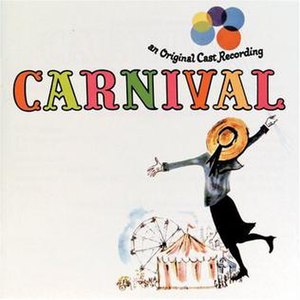The whirl of white dresses between the matrix of mirrors, morph into a wreath of white ashes in Lonigan’s reveries, or visions of angels amidst a holocaust, leaping, twirling, pirouetting …
Sitting on the floor in a corner of the dance studio, Lonigan draws circles, spirals, parabolas on his ragged sketch pad, trying to capture the poetry in motion flying across the room to the plunk of a rehearsal piano as Degas once did long ago. War went on then too.
One two three four what are we fighting for? The words of that old protest song fall out with each cord.
When Lonigan went off to war, he knew he would never come back – at least not with his mind in tact – and he didn’t, which is why he used the G.I. Bill to go to art school instead of studying something practical.
Up and down round and round – right, wrong, truth or dare, upside down, inside out. Makes one wonder what the dance of life is all about?
****
Dark, rocky days in dead zones (like a dream but not) where nowhere is everywhere and
nothing is anything and unknown hours fade to black.
“The end of the world is at hand, man.”
The alley man stares at him, starkly, gripping a Sterno can.
Lonigan shadows through the snowfall, past doors which have no numbers, down streets
which have no names, through shapes which have no faces, under clocks run out of time, while
wind whipped shrouds swirl around like the ghosts of dead men’s dreams.
“Death toll mounts!” A newsy shouts. “More troops killed!”
He buys a paper, uses it for a hat. White veils wrap around him like wreaths, as he bundles down the ghosted streets, past the small grubby pubs and around toppling ghetto tenements, along the rows of shops filled with such stuff that only the poor would want. “I am a soldier of misfortune and” Lonigan muses as he marchs through the deepening drifts, “I fought that holy war on the desert sand.”
At a dead end dive, Lonigan ducks in from the cold. DEATH TOLL REACHES 4,000. he scans the headlines as he slump onto a stool. “Draft.” He tells the barman and drops a fistful of day labor dollars on the counter. STOCKS PLUMMET, PLANTS CLOSE, RECESSION DEEPENS, UNEMPLOYMENT FIGURES DISAPPOINTING, HOUSES CONTINUE TO FORECLOSE. He shakes his head and broods through an article about Iraq, relives the ambushes, roadside bombings, heat, fear, and remembers the faces of guys no one will see anymore.
A fairyland of falling snow, whorls in the barroom window. Crystal castles and other
fanciful marvels replace the tumbledown ghetto, while white winged spirits dance off the drifts,
fly with the flurries, twirl and pirouette.
“4,000 souls,” Lonigan muses, “ gone where nobody knows.”
****
“She’s beautiful.”
Tracey sits with Lonigan in his studio and ponders his latest painting.
“She isn’t done.”
“Who’s the model?”
“Death.”
“You’re crazy! Hey, I know that girl! She’s that ballerina, your old flame. How come you never paint me?”
“I only paint what I hate.”
“You do not!”
“War, plague, famine, betrayal – I’ll paint you next, call it Midnight Angel.”
“Where are you going?”
Lonigan moves from the couch to the easel, takes a hair of the dog on the way, squints as the sunlight sets the canvas ablaze. Fat Cats, the Jet Set, the artsy social whirl, play in his memories of the pretty ballerina, along with some specter of himself, who quickly became an inconvenient oddity amidst that rarefied swirl she lived in with his hard scrabble sketches of working class life, battlefield drawings, paintings of the down and out.
“Why are you doing that?”
Lonigan ghosts out the goddess with a solvent-soaked rag, fades her beauty, erases her eyes.
****
“Dear Mr. Lonigan,
Thank you so much for your submission to our agency. Yours is a well written and compelling collection of stories. However, after careful consideration we decided we are not the right agency for Mine Fields. We urge you to keep searching for the right fit.”
“Dear Mr. Lonigan,
Your collection of war stories is a riveting read. Some of the descriptions make you stand up and salute. Unfortunately, we don’t think we can handle it successfully. We wish you the best with placing it elsewhere.
“Dear Mr. Lonigan,
Thank you for your submission of slides to our gallery. After careful consideration we have decided they are not quite right for our collection.”
****
“Artists live where all dreams end. Truth, illusion, are a dance of apparitions. You try to capture it but smoke and mirrors is what you usually get. Sometimes, if your lucky, life’s magic.”
Black winds chase across the concrete canyons. Designer dream worlds appear in storefront windows. On corners Christmas carolers sing the season’s songs.
As he bundles through the cold, looking in the windows of galleries and bookstores, collar turned up, fists pushed deep in the pockets of his long coat, Lonigan ponders his latest artist’s statement. The streets are crowded with tourists, shoppers. He passes a frail old lady asleep in a doorway, goes back an drops a coin in her cup, as snowflakes circle each pale ghost lost in the nimbus of the street’s night glow, where all is silent, still and cold.
End




You must be logged in to post a comment.